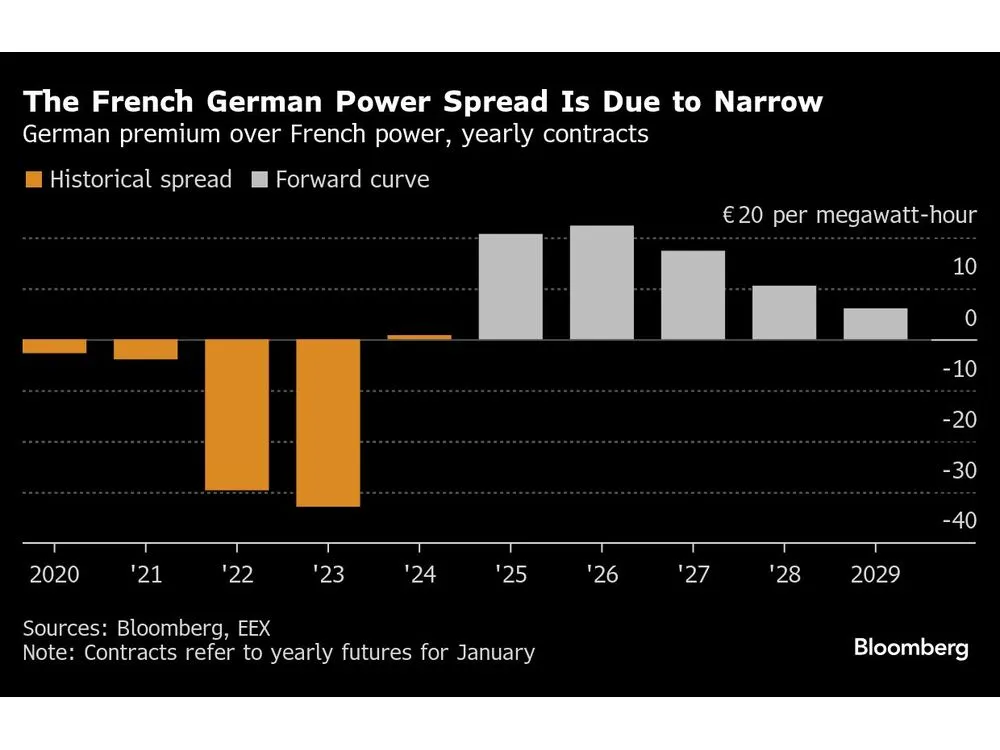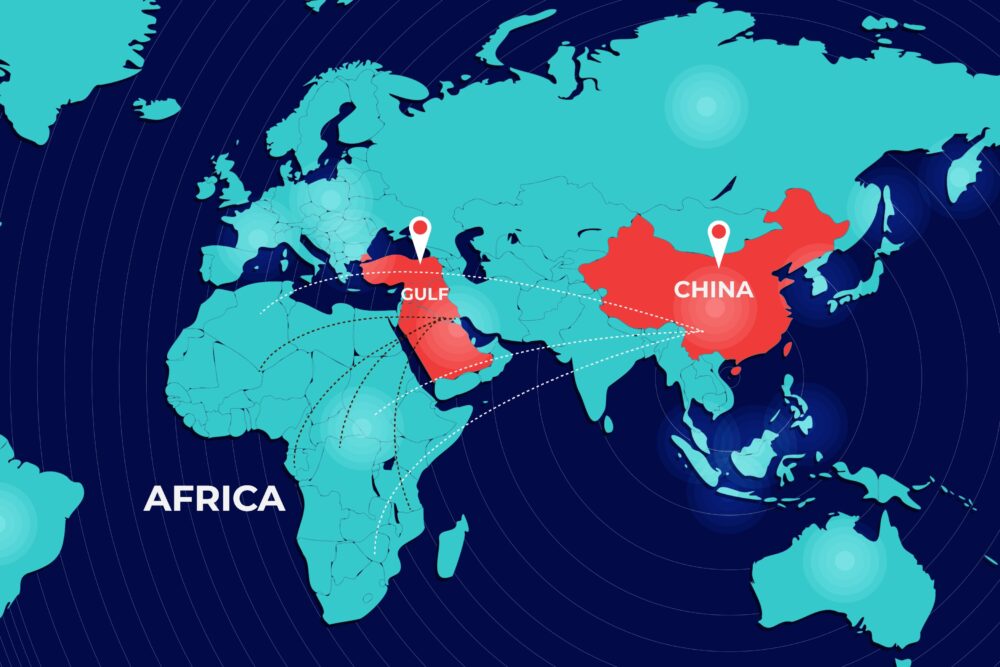
A push to build more renewable generation in Germany will begin to bring down wholesale power prices by the end of next year, according to market analysts.
Electricity prices in Germany have been consistently more expensive than neighboring France since the end of 2023 with the spread at its widest earlier this month at €28. This difference is largely due to France benefitting from its large fleet of low-cost nuclear generation.
While the premium will remain this year, it will start to narrow by the end of 2026 as Germany rolls out more wind farms and upgrades it’s grid to use that power more effectively.
“We expect the German-French spread to to remain pretty wide this year,” Jason Ying, Commodity Strategist at BNP Paribas said. “But over time, it should narrow, because renewable capacity build out in Germany is out-pacing the French.”
The spread between the year-ahead contracts was at €22.66 at 2:55 pm Berlin time. BNP forecasts the spread for the year-ahead contracts to narrow to single digits by the fourth quarter of 2026.
Germany has been among the countries hardest hit by Russia’s invasion of Ukraine, which forced it to quickly wean itself off Russian gas. The urgency translated into building more import facilities for liquefied natural gas, and to speeding up renewable installations.
Germany aims to get 80% of its electricity from renewables by 2030. That means it needs to deploy a lot more solar and wind power, while connecting them through longer transmission lines. Thanks to generous subsidies, solar installed capacity jumped to 100 gigawatts last year, up from about 60 gigawatts in 2021. Onshore wind is also set to see faster deployment with record approvals and auction awards last year.
Source: BNNBLOOMBERG








